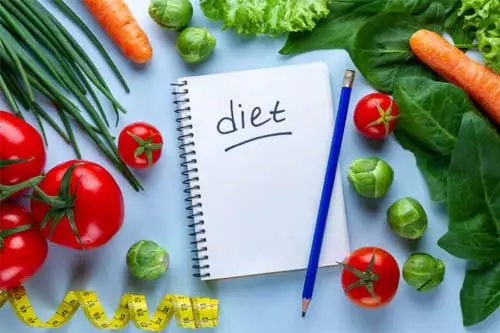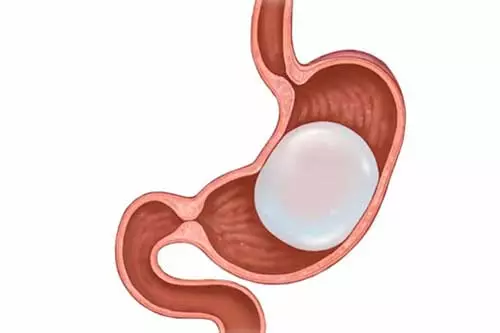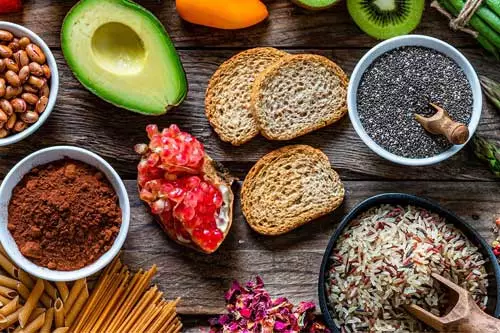Are you looking to achieve long-term weight loss success? If so, it’s essential to understand the importance of a balanced diet after undergoing gastric balloon surgery. While the gastric balloon can help jumpstart your weight loss journey, maintaining the results requires a sustainable approach to eating.
A balanced diet is crucial for numerous reasons. Not only does it provide your body with essential nutrients, but it also helps control portion sizes and keeps you feeling satisfied. By incorporating a wide variety of fruits, vegetables, lean proteins, whole grains, and healthy fats into your meals, you can ensure that you’re getting the nourishment your body needs while still keeping the calories in check.
Additionally, a balanced diet helps stabilize blood sugar levels, reduce cravings, and support overall well-being. It also enhances the effectiveness of the gastric balloon, helping you maximize your weight loss journey.
Remember, achieving long-term weight loss success is a marathon, not a sprint. By prioritizing a balanced diet after gastric balloon surgery, you can set yourself up for sustainable results that will last a lifetime.
Understanding the importance of a balanced diet for weight loss
When it comes to weight loss, a balanced diet forms the foundation for success. It involves consuming a variety of foods from different food groups to provide your body with the necessary nutrients while still maintaining a calorie deficit. A balanced diet helps you achieve and maintain a healthy weight, reduce the risk of chronic diseases, and improve overall well-being.
One of the primary benefits of a balanced diet is that it ensures you’re getting all the essential nutrients your body needs to function optimally. By including a variety of fruits, vegetables, whole grains, lean proteins, and healthy fats in your meals, you can ensure that you’re getting a wide range of vitamins, minerals, and antioxidants.
Another crucial aspect of a balanced diet is portion control. It helps you manage your calorie intake and prevent overeating. By focusing on the quality and quantity of your food choices, you can keep your portion sizes in check and avoid consuming excess calories.
Furthermore, a balanced diet helps regulate blood sugar levels, reducing the risk of insulin resistance and diabetes. When you eat a combination of carbohydrates, proteins, and fats, your body can better regulate blood glucose levels, leading to improved energy levels and overall health.
Incorporating a balanced diet into your lifestyle is especially important after gastric balloon surgery. The gastric balloon helps you feel fuller with smaller portions, but it’s still essential to prioritize nutrient-dense foods to support your weight loss journey.
The role of a balanced diet in maintaining weight loss after gastric balloon
After undergoing gastric balloon surgery, maintaining your weight loss results is crucial for long-term success. While the gastric balloon can help you lose weight initially, it’s essential to adopt a balanced diet to sustain those results.
A balanced diet plays a vital role in weight maintenance after gastric balloon surgery by providing your body with the necessary nutrients while keeping your calorie intake in check. By focusing on whole, unprocessed foods and avoiding excessive consumption of high-calorie, low-nutrient foods, you can ensure that you’re nourishing your body without compromising your weight loss goals.
Additionally, a balanced diet helps prevent weight regain by promoting satiety. When you consume a variety of foods that are high in fiber, protein, and healthy fats, you’ll feel fuller for longer periods, reducing the likelihood of overeating or snacking on unhealthy foods.
Moreover, a balanced diet supports a healthy metabolism, ensuring that your body efficiently burns calories. By including lean proteins, complex carbohydrates, and healthy fats in your meals, you can help maintain or increase your metabolic rate, which is essential for weight maintenance.
Incorporating a balanced diet after gastric balloon surgery not only helps you maintain your weight loss but also improves your overall well-being. By focusing on nutrient-dense foods, you’ll provide your body with the fuel it needs to function optimally, boosting energy levels and supporting physical and mental health.
Key components of a balanced diet for long-term weight loss success
A balanced diet consists of several key components that are essential for long-term weight loss success. By following these guidelines, you can nourish your body while maintaining a calorie deficit, helping you achieve and sustain your weight loss goals.
1. Fruits and vegetables: Aim to include a variety of colorful fruits and vegetables in your meals. These nutrient-rich foods provide essential vitamins, minerals, and antioxidants while being low in calories. Incorporate them into your meals as snacks, side dishes, or main ingredients to add flavor, texture, and nutritional value.
2. Lean proteins: Include lean sources of protein such as skinless poultry, fish, tofu, legumes, and low-fat dairy products in your diet. Protein is essential for muscle repair and growth, helps keep you feeling full, and supports a healthy metabolism.
3. Whole grains: Opt for whole grains like whole wheat, quinoa, brown rice, and oats instead of refined grains. Whole grains are rich in fiber, vitamins, and minerals, providing sustained energy and promoting feelings of fullness.
4. Healthy fats: Incorporate sources of healthy fats, such as avocados, nuts, seeds, and olive oil, into your diet. These fats are essential for brain health, hormone production, and nutrient absorption. While fats are higher in calories, they are also highly satiating, helping you feel satisfied and reducing the likelihood of overeating.
5. Hydration: Don’t forget the importance of staying hydrated. Drink plenty of water throughout the day to support digestion, metabolism, and overall health. Avoid sugary beverages and opt for water as your primary source of hydration.
Remember, a balanced diet is not about strict rules or deprivation. It’s about finding a sustainable approach to eating that nourishes your body while supporting your weight loss goals.
Meal planning and portion control for maintaining weight loss
Meal planning and portion control play crucial roles in maintaining weight loss after gastric balloon surgery. By being mindful of your food choices and portion sizes, you can ensure that you’re meeting your nutritional needs while preventing overeating.
One effective strategy for maintaining weight loss is meal planning. Set aside time each week to plan your meals and snacks. Consider your nutritional requirements, personal preferences, and lifestyle when creating your meal plan. This will help you make healthier choices, reduce the temptation to grab unhealthy foods on the go, and prevent overeating.
When planning your meals, focus on incorporating a variety of nutrient-dense foods from different food groups. Include all the key components of a balanced diet, such as fruits, vegetables, lean proteins, whole grains, and healthy fats, to ensure you’re getting a wide range of nutrients.
Portion control is equally important for maintaining weight loss. After gastric balloon surgery, your stomach capacity is reduced, making it essential to monitor your portion sizes. Use smaller plates and bowls to visually trick yourself into thinking you’re eating more. Focus on eating slowly and mindfully, paying attention to your body’s hunger and fullness cues.
Consider using measuring cups, food scales, or portion control containers to accurately measure your food portions. This will help you avoid consuming excess calories and ensure that you’re sticking to your weight loss goals.
In addition to meal planning and portion control, be mindful of your snacking habits. Choose nutrient-dense snacks such as fruits, vegetables, yogurt, or nuts, and avoid mindless snacking in front of the TV or computer.
By implementing these strategies, you can maintain your weight loss after gastric balloon surgery and continue on your journey towards long-term success.
Incorporating exercise into your weight loss journey
While a balanced diet is crucial for weight loss and maintenance, incorporating regular exercise into your routine can enhance your results and improve overall health. Exercise helps burn calories, build lean muscle mass, and boost metabolism, supporting your weight loss journey.
When starting an exercise routine after gastric balloon surgery, it’s essential to consult with your healthcare team to ensure it aligns with your physical capabilities and any post-operative guidelines.
Begin by incorporating low-impact exercises such as walking, swimming, or cycling into your routine. These activities are gentle on your joints and can be easily modified to suit your fitness level. Aim for at least 150 minutes of moderate-intensity aerobic exercise per week, spread out over several days.
Strength training is also essential for weight maintenance and overall health. It helps build lean muscle mass, which can increase your metabolic rate and calorie-burning potential. Incorporate strength training exercises such as weightlifting, resistance band workouts, or bodyweight exercises two to three times per week.
Additionally, don’t forget about the importance of flexibility and mobility exercises. Stretching, yoga, or Pilates can help improve flexibility, posture, and joint health.
Remember, the key is to find activities that you enjoy and can stick to in the long term. This will help you maintain your weight loss and make exercise a sustainable part of your lifestyle.
Tips for staying motivated and overcoming challenges in maintaining a balanced diet
Maintaining a balanced diet can be challenging, especially in the face of temptations and busy schedules. However, with the right mindset and strategies, you can stay motivated and overcome these challenges.
Here are some tips to help you stay on track:
1. Set realistic goals: Instead of focusing solely on the number on the scale, set realistic and achievable goals that are within your control. For example, aim to incorporate more fruits and vegetables into your meals, drink more water, or engage in regular exercise. Celebrate small victories along the way to stay motivated.
2. Find healthy alternatives: Cravings can often derail a balanced diet. Instead of giving in to unhealthy options, find healthier alternatives that satisfy your cravings. For example, opt for air-popped popcorn instead of chips, or choose dark chocolate instead of a candy bar.
3. Practice mindful eating: Be present and mindful when eating. Pay attention to the taste, texture, and smell of your food. Eat slowly and savor each bite. This helps you tune in to your body’s hunger and fullness cues, preventing overeating.
4. Plan ahead: Prepare healthy meals and snacks in advance, so you always have nutritious options on hand. This reduces the likelihood of making impulsive, unhealthy choices when hunger strikes.
5. Seek support: Surround yourself with a supportive network of friends, family, or a support group who can provide encouragement and accountability. Share your goals, challenges, and successes with them.
6. Track your progress: Keep a food diary or use a mobile app to track your food intake, physical activity, and progress. This helps you stay accountable and identify any patterns or areas for improvement.
7. Practice self-care: Take care of your overall well-being by getting enough sleep, managing stress, and engaging in activities you enjoy. Emotional well-being plays a significant role in maintaining a balanced diet and overall health.
Remember, maintaining a balanced diet is a lifelong journey, and setbacks are a normal part of the process. Be kind to yourself, stay committed, and focus on progress, not perfection.
Seeking professional guidance and support for long-term weight loss success
While a balanced diet is essential for long-term weight loss success, seeking professional guidance and support can significantly enhance your journey.
Consider working with a registered dietitian or nutritionist who specializes in weight management. They can provide personalized guidance, develop a meal plan tailored to your needs, and help you overcome any challenges or barriers you may face.
A dietitian can also help you address any underlying issues related to your relationship with food and provide strategies for mindful eating and emotional well-being.
Additionally, joining a support group or weight loss program can provide valuable support, accountability, and a sense of community. These programs often offer educational resources, group meetings, and access to professionals who can guide you through your weight loss journey.
Remember, you don’t have to navigate this journey alone. Seeking professional guidance and support can make a significant difference in your long-term weight loss success.
Success stories and testimonials from individuals who have achieved long-term weight loss with a balanced diet after gastric balloon
Real-life success stories and testimonials can serve as powerful motivators and sources of inspiration. Here are a few stories from individuals who have achieved long-term weight loss with a balanced diet after gastric balloon:
1. Sarah: After undergoing gastric balloon surgery, Sarah embraced a balanced diet that included plenty of fruits, vegetables, lean proteins, and whole grains. She focused on portion control, practiced mindful eating, and incorporated regular exercise into her routine. By prioritizing her health and making sustainable changes to her diet and lifestyle, Sarah lost 60 pounds and has successfully maintained her weight loss for over two years.
2. David: David struggled with his weight for years before opting for gastric balloon surgery. After the procedure, he committed to a balanced diet that included a wide variety of nutrient-dense foods. He made a conscious effort to listen to his body’s hunger and fullness cues and focused on eating mindfully. With the support of a registered dietitian, David lost 80 pounds and has maintained his weight loss for over five years.
3. Jennifer: Jennifer’s weight had always been a source of insecurity and health concerns. After undergoing gastric balloon surgery, she prioritized a balanced diet that incorporated whole foods and eliminated processed foods and sugary beverages. She also found joy in cooking and experimenting with healthy recipes, which helped her stay motivated and engaged in her weight loss journey. With the support of her healthcare team, Jennifer lost 100 pounds and has successfully maintained her weight loss for over seven years.
These success stories demonstrate that achieving long-term weight loss success is possible with a balanced diet after gastric balloon surgery. By prioritizing a nutrient-rich diet, practicing portion control, incorporating exercise, seeking professional guidance, and staying committed, you too can achieve sustainable results.
Conclusion: Embracing a balanced diet for sustainable weight loss and overall well-being
Achieving long-term weight loss success requires a holistic approach that goes beyond quick fixes or fad diets. Embracing a balanced diet after gastric balloon surgery is essential for sustainable results and overall well-being.
A balanced diet provides your body with essential nutrients, helps control portion sizes, and keeps you feeling satisfied. It supports weight loss by stabilizing blood sugar levels, reducing cravings, and enhancing the effectiveness of the gastric balloon.
Incorporating a variety of fruits, vegetables, lean proteins, whole grains, and healthy fats into your meals ensures that you’re getting the necessary nourishment while still maintaining a calorie deficit.
Meal planning, portion control, exercise, and seeking professional guidance and support are all crucial components of maintaining weight loss after gastric balloon surgery.
By staying motivated,




